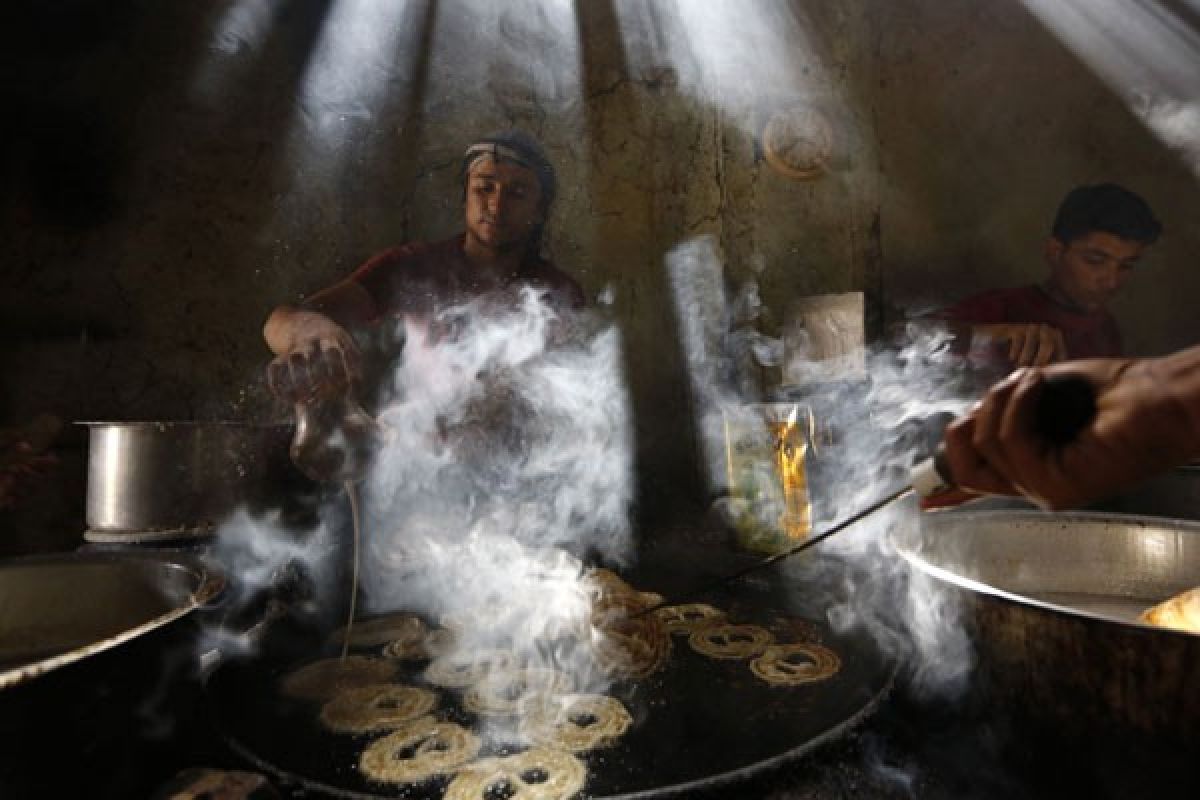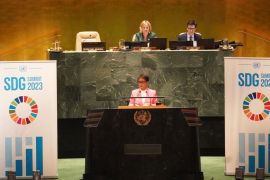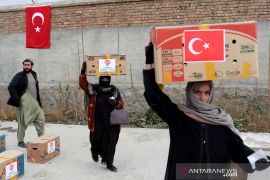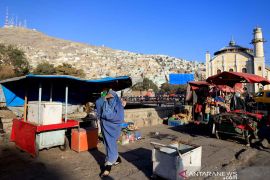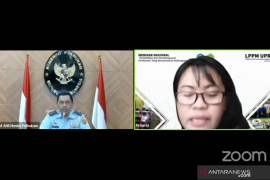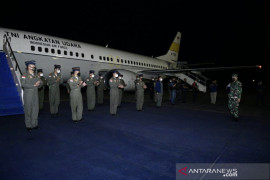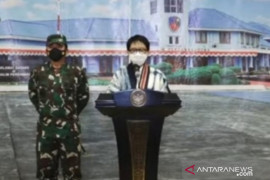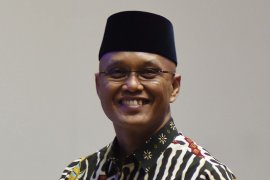I am waiting to collect the dresses that I ordered for myself, my wife and my children."Kabul (ANTARA News/Xinhua) - Amid security concerns, devout Afghan Muslims are now busy shopping and making preparations to celebrate the upcoming Eidul Fatar, the end of the fasting month of Ramadan, the second biggest religious festival among Muslims all over the world.
The largest yearly religious festival, Eidul Adha, or Eidul Qurban, comes two months and 10 days after Eidul Fatar, during which the Muslims slaughter domestic animals, especially sheep and goats, and distribute the meat to needy people.
Confectionery shops and tailoring stalls in markets these days are crowded with customers who want to celebrate the Eidul Fatar or in short, Eid, with as much splendor as possible.
Eidul Fatar will be observed either next Monday or Tuesday depending on moon sighting, in accordance with the lunar calendar.
"I am waiting to collect the dresses that I ordered for myself, my wife and my children," a Kabul resident Mohammad Azim told Xinhua.
Azim, however, has expressed some concerns about Taliban attacks but hoped that the insurgents would respect the Muslim holiday so that he and the other Afghans can enjoy the Eid celebration.
During the past weeks, the Taliban have continued their attacks in various parts of the country. It is still doubtful if the insurgents, known for also for being devout Muslims, would pause during the Eid, which is one of the two holiest days for all Muslims.
Taliban militants in their latest violent attacks, according to media reports, killed 16 travelers, all civilians, in the central Ghor province on Wednesday, just days before Eidul Fatar.
Like Azim, most Afghans have flocked to tailoring shops, confectionery stores to get their new dresses and buy sweets, chocolate cakes and cookies to welcome their guests on Eid days.
It is centuries old tradition in Afghanistan to celebrate Eid with religious fervor and solemnity.
In Afghanistan, Eidul Fater is a three-day public holiday. Public and private offices are closed during Eid days and people usually visit each others home and those who have grudges usually forgive their enemies and become friends again in the spirit of reconciliation.
During the Ramadan and upcoming Eidul Fatar, the other side of Afghanistan is usually being projected, and this is the high rate of poverty in the conflict-ridden Afghanistan.
During these days, the number of street beggars goes up as the date for Eid nears. Men, women and children are seen sitting on the sidewalks asking for alms from passersby and motorists.
"My husband was killed in a suicide attack some two years ago in Kabul, and since then I have been forced to beg to support my family," a beggar, who introduced herself Shazia, told Xinhua.
Shazia said that with the money she gets from begging, she would buy second-hand dresses for her four children to make them happy during the Eid holidays.
She said that she fears that even during the Eid days, the Taliban would strike again, killing innocent civilians like her husband.
With the transfer of power from President Hamid Karzai to the next elected president still uncertain because of the contested presidential runoff, Afghanistan is facing another bleak future, especially with the specter of continued suicide attacks by the Taliban who want to regain power and rule over Afghanistan again.
(U.C003)
Reporter: Haleem
Editor: Priyambodo RH
Copyright © ANTARA 2014
